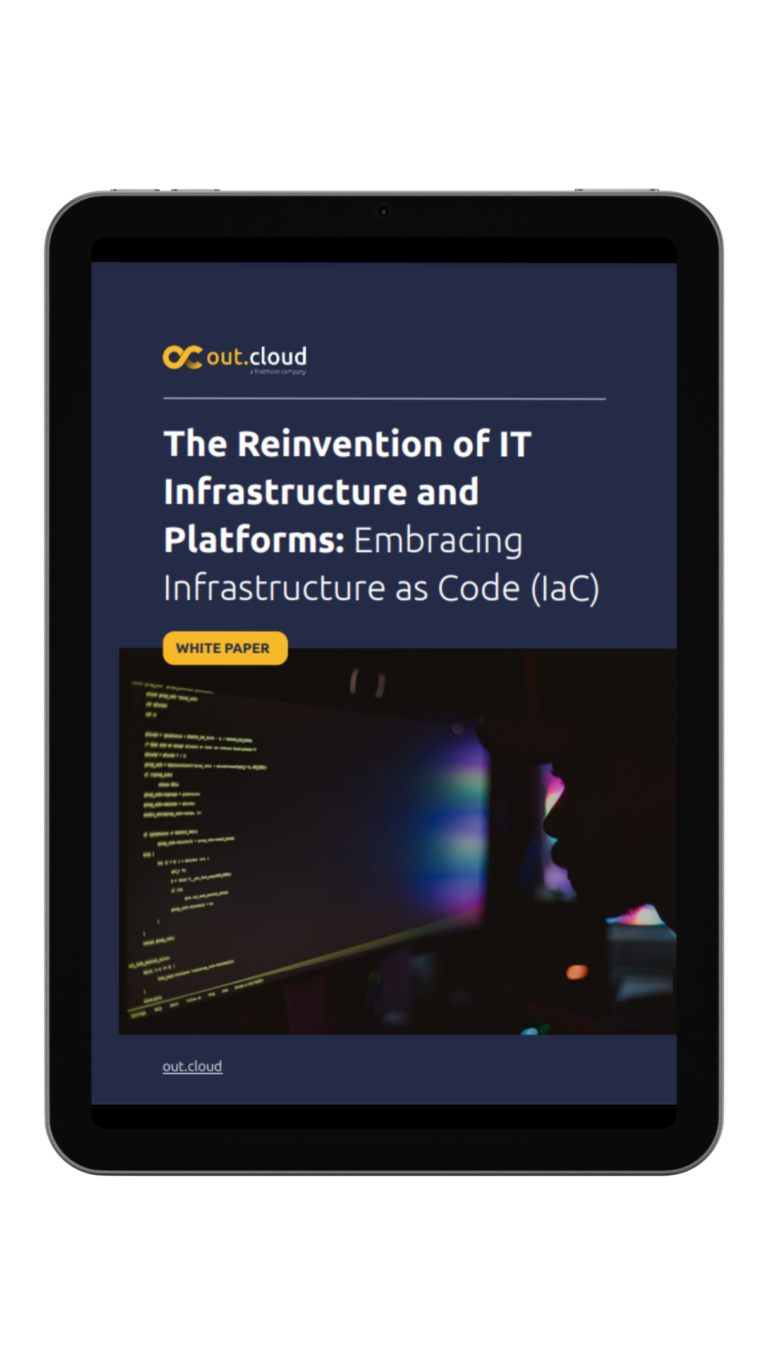In the current dynamic IT market, the abundance of technologies and services has never been higher. As business needs grow, so does the variety of services available. However, how can you know what is the right choice for your business? What distinguishes a provider focused on outsourcing people from one specialized in Teams as a Service? Today, we break down this valuable business model!
Key Takeaways
- Scalability and Flexibility: TaaS offers the ability to adjust team size and composition based on project requirements, allowing businesses to remain agile and responsive.
- Cost Efficiency: TaaS helps reduce recruitment, training, and operational costs, with companies paying only for the services they need.
- Enhanced Collaboration: Integrated tools and agile methodologies ensure seamless communication and collaboration between your team and the outsourced professionals.
- Access to Expertise: TaaS provides access to a global talent pool, ensuring you have the right skills for your project.
- Focus on Core Functions: With a dedicated TaaS team managing specific projects, your in-house resources can concentrate on strategic initiatives and core business functions.

What is Teams as a Service (TaaS)?
At Out.Cloud, we provide more than support to businesses across Europe. We assist organizations with Teams as a Service (TaaS) business model. Unlike many cloud consulting companies, which focus on the outsourcing of resources, we provide a complete team service. This means you have access to skilled talent specialised in the latest technologies, with the know-how to implement agile DevOps methodologies and hands-on experience in cloud consulting and management.
Teams as a Service (TaaS) is an innovative outsourcing model where companies provide fully functional, dedicated teams tailored to your specific project needs. Unlike traditional outsourcing, TaaS focuses on delivering complete teams rather than individual freelancers, ensuring a cohesive and integrated approach. These teams consist of highly skilled professionals who work exclusively on your projects, blending seamlessly with your in-house staff to drive success.
TAAS can be characterized as a never-ending path for innovation. Within TAAS, businesses gain access to speed and adaptability. With a dedicated team, the constant search for knowledge and experience is no longer necessary as you have at your disposal specialized professionals.
A well-balanced team with the right skillset is quicker and more efficient than a team comprised of people who work together for the first time, which is common with most outsourcing companies as their main resource is staff augmentation, not dedicated teams. This translates into you using your time for actual management, driving innovation and improvements, and not lagging behind with unproductive issues.

TaaS: All About Collaboration
To achieve greater efficiency, organizations must set goals that focus on collaboration and the TAAS model is the perfect approach. Instead of businesses having to hire individuals directly, which involves dealing with the entire hiring process, or depend on an outsourcing provider assembling a team, which takes time.
At Out.Cloud, we have in place a team that streamlines this with no human resources involvement needed. This process allows us to swiftly focus on your project. With TAAS, efficiency is the top priority. Equally important, TAAS erases your concern for the development environment, project management, and server issues, among many others. This allows your in-house staff efforts to be concentrated on the business, its primary and immediate necessities.
Effective collaboration is the cornerstone of any successful project. TaaS excels in fostering a collaborative environment through several key mechanisms:
- Integrated Communication Tools: TaaS providers equip their teams with cutting-edge communication and collaboration tools, ensuring real-time updates and seamless interaction between team members and clients.
- Agile Methodologies: By adopting agile practices, TaaS teams can quickly adapt to changes, maintain transparency, and ensure continuous delivery of high-quality results.
- Cultural Alignment: TaaS providers invest in understanding your company culture, ensuring that their teams align with your values, work ethic, and communication style.
- Proximity and Time Zones: With our base in Portugal, we offer the advantage of a favourable time zone for European clients, facilitating synchronous collaboration and quick turnaround times.
The strength of the Teams as a Service model resides on its difference when compared to a common outsourcing plan in which the provider presents its services, while a TAAS team creates the model that best fits you. From best-practices to execution and management, among others, TAAS can be the turning point for your business.

The Appeal of TaaS
Outstanding professionals are rare and great teams are rarer, so establishing a dream team takes time and in most cases, there are frequent time-delaying stages, such as team members who go through different stages of development before being able to join the group and work at full-speed.
As expected, everything must happen promptly. However, the appeal of a teams as a service is its speed and already combined knowledge. Having at your disposal a collection of minds on the go with the skills and know-how you seek isn’t just a great team, it’s a super team.
Teams as a Service (TaaS) appeals to businesses seeking a flexible and efficient way to manage projects without the constraints of traditional hiring practices. The model allows for quick scaling, reduced overheads, and access to top-tier talent from around the world. For C-level executives, TaaS represents a strategic solution to operational challenges, providing a way to remain competitive and innovative in an ever-evolving market.
There is no denying that having a “ready-made” high-performance team, tested in delivering results, is extremely advantageous. In other words, teams that will get you out of a bind, solve it, and provide you with internal rewards are a match made in heaven!

5 Best Practices for Effective TaaS Implementation
- Define Clear Objectives: Establish well-defined goals and performance metrics to guide the TaaS team and ensure alignment with your project requirements and business objectives.
- Choose the Right Partner: Select a TaaS provider with proven expertise in your industry and a strong track record in relevant technologies such as DevOps and Cloud Solutions.
- Ensure Transparent Communication: Implement effective communication channels and regular status updates to foster collaboration and address issues promptly.
- Integrate Agile Methodologies: Adopt agile practices to enhance flexibility, facilitate continuous improvement, and adapt to evolving project needs.
- Monitor and Evaluate Performance: Regularly assess the TaaS team’s performance against key metrics to ensure that objectives are being met and to make adjustments as needed.

Future Trends and Innovations in TaaS
The future is now! The Teams as a Service (TaaS) model is rapidly evolving, driven by technological advancements and shifting business needs. Here, we explore key trends and innovations that are shaping the future of TaaS, with real-world examples illustrating their impact.
#1 AI and Machine Learning Integration
Artificial Intelligence (AI) and Machine Learning (ML) are set to revolutionise TaaS by enhancing decision-making, automating routine tasks, and improving predictive capabilities.
Companies like GitHub have already integrated AI into their platforms with GitHub Copilot, an AI-powered code completion tool. This innovation helps teams write code faster and more accurately, thereby increasing productivity and reducing errors.
#2 Enhanced Collaboration Tools
As remote work becomes increasingly prevalent, advanced collaboration tools are crucial for maintaining productivity and cohesion within teams.
Microsoft Teams is a prime example, continuously updating its platform to include features like real-time collaboration on documents, integrated project management tools, and AI-driven insights.
These enhancements allow TaaS providers to offer more seamless and efficient remote collaboration experiences.
#3 Cloud-Native Development
Cloud-native development is becoming the standard for modern applications, with TaaS providers focusing on offering specialised expertise in this area.
For instance, companies like Pivotal, now part of VMware, provide TaaS solutions that help organisations transition to cloud-native architectures. Their services enable teams to develop, deploy, and manage applications in the cloud more effectively, ensuring scalability and flexibility.
#4 Cybersecurity Focus
As cyber threats become more sophisticated, there is an increasing emphasis on integrating robust cybersecurity measures within TaaS offerings.
IBM’s X-Force Red, a team of veteran hackers, is an example of how TaaS providers are prioritising security. They offer services that include penetration testing and vulnerability assessments, helping organisations identify and mitigate security risks proactively.
#5 DevOps Automation
Automation is at the heart of DevOps, and its integration into TaaS is enhancing efficiency and consistency.
Jenkins X is an open-source project that automates CI/CD for cloud applications on Kubernetes. By utilising such tools, TaaS providers can streamline development pipelines, reduce manual intervention, and ensure faster delivery of high-quality software.
#6 Expanded Use of DevSecOps
Incorporating security into every stage of the development process, known as DevSecOps, is becoming a standard practice. TaaS providers are adopting this approach to ensure that security is not an afterthought but a fundamental aspect of the development lifecycle.
AWS offers DevSecOps solutions that integrate security practices within the CI/CD pipeline, enabling teams to deliver secure applications without compromising on speed or agility.
#7 Focus on Continuous Learning and Skill Development
To keep pace with rapid technological advancements, continuous learning and skill development are becoming integral to TaaS.
Platforms like Pluralsight offer TaaS that includes access to a vast array of training resources, allowing teams to upskill and stay current with the latest industry trends and tools. This focus ensures that TaaS teams remain competitive and can deliver innovative solutions.
Conclusion
Teams as a Service (TaaS) represents a transformative approach to achieving business agility, cost efficiency, and exceptional project outcomes. By leveraging dedicated, scalable, and highly skilled teams, companies can enhance their collaboration efforts, drive innovation, and maintain a competitive edge in the market. Our services at Out.Cloud are designed to provide you with the best TaaS solutions, tailored to meet your unique business needs.
Ready to experience the benefits of Teams as a Service?
Contact us now to learn more about our customised TaaS solutions and how we can help you achieve your strategic goals.





